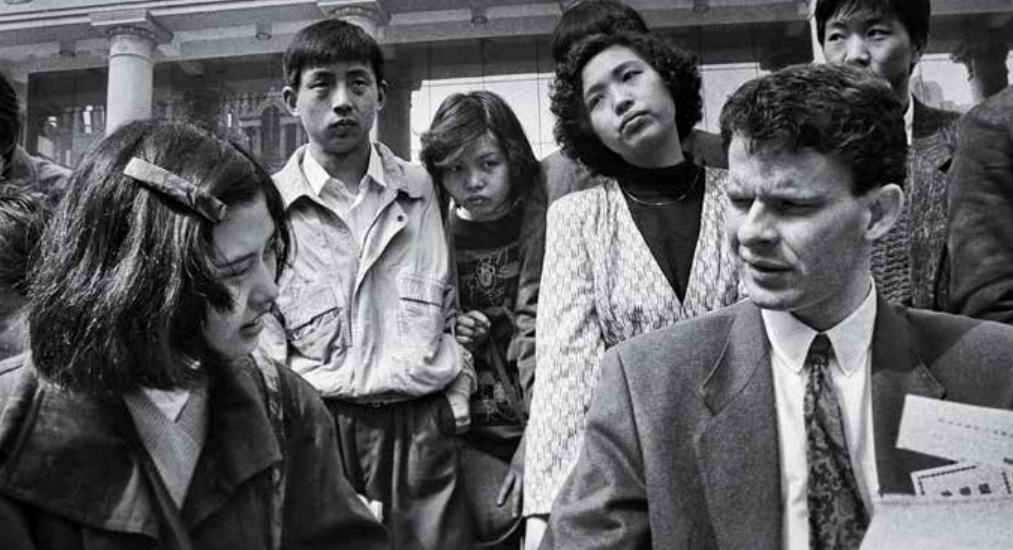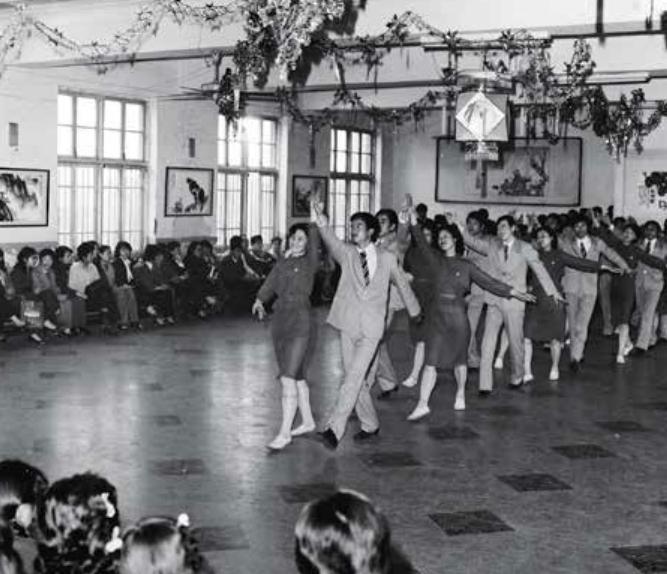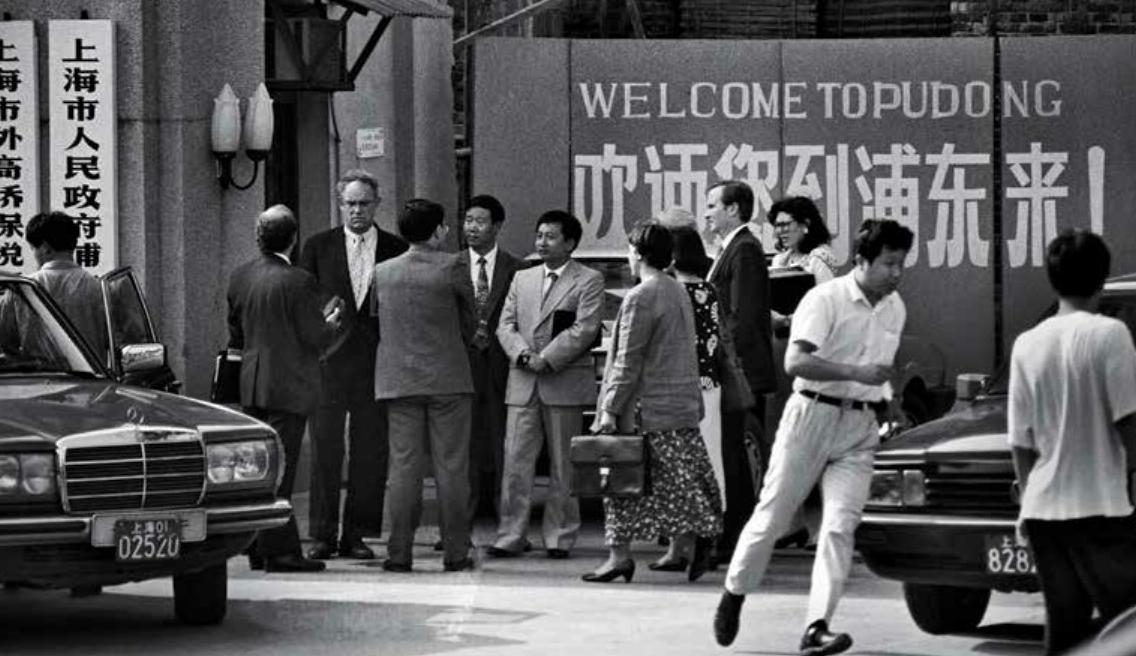An American Scholar’s“Incredible Journey”with China’s Opening Up
2019-08-06byZhouXin
by Zhou Xin
Last year, China celebrated the 40th anniversary of its reform and opening up, which has changed lives of hundreds of millions of people.
Across 40 years, China has transformed from a highly centralized planned economy to a market economy with socialist characteristics. It has reformed its systems and become more and more open to the world.
Its GDP grew from 367.9 billion yuan (US$53.5 billion) in 1978 to 90.03 trillion yuan (US$13.1 trillion) in 2018. It has become second largest economy, biggest manufacturer, and the second largest consumer in the world. Over the past four decades, China has lifted 740 million people out of poverty.
On December 18, 2018, in his speech delivered at a conference in celebration of the 40th anniversary of the historic Third Plenary Session of the 11th CPC Central Committee, President Xi Jinping declared that“the Chinese nation has achieved a tremendous transformation from standing up, growing rich to becoming strong” and that “the Chinese people have achieved a tremendous transformation from days of scarcity to lives of moderate prosperity.”
Laurence Brahm is an international lawyer, political economist and environmentalist from the United States. He came to China in 1981 when the countrys reform and opening up had just begun. After being involved in Chinas reform and opening up in many sectors and witnessing Chinas transformation from an economy of scarcity to abundance, Brahm documented his experiences in the book An Incredible Journey. He recently shared his experience and thought on Chinas reform and opening up with China Pictorial (CP).
CP: Why did you come to China? What was your first impression on this country?
Laurence Brahm: I came to China to study Chinese for a semester at Nankai University as a member of the second group of students to come to China to learn Chinese after China-U.S. relations were normalized in 1979.
China was then a nation of economic scarcity. There were few kinds of clothes. Everybody either wore blue or green. There was not enough food. As foreign students, we were privileged so we got to eat some vegetables. Most Chinese students only ate rice and steamed bread. Without ration coupons or food stamps, you couldnt buy food.
However, China was just beginning to open up. State-owned stores offered so little that people lined up every day to buy food in Tianjin. Farmers on bicycles would stop on street corners to sell vegetables and peanuts carried in a little piece of cloth. Suddenly I saw the rumbling of a market economy, but it was just the beginning. A year or two later, a clothing market opened in Xidan in Beijing. Some of my Chinese friends were very excited. At night after dinner, we would go to Xidan to see clothes arriving from Guangzhou. We began to realize that a market economy was emerging and improvising ways to take some type of shape.
CP: How have you been involved in Chinas reform and opening up?
Brahm: In the 1980s I was involved in helping a lot of foreign enterprises enter China. I worked on the very first deal ever for the oil company ExxonMobil in China as well as helping Roche Pharmaceuticals, Kodak, Bayer and Ericsson. I even worked on a contract for a bold and what people considered risky project because it was at the China World Trade Center. People were laughing because they thought it was outside of the Second Ring Road and far from the center of Beijing. Everybody thought that everything was happening at Wangfujing in the city proper and couldnt imagine that the city would grow that quickly. Every time we made a joint venture, we were restructuring a state-owned enterprise.
Due to my extensive experience with state-owned enterprises, in the mid-1990s I was invited to work on a project involving the Asian Development Bank and the Department of Economic System Reform of the State Council. I led work on part of a blueprint for the reform of state-owned enterprises. Based on a recommendation by Wan Li, who once served as the first Party secretary of Anhui Province, enterprises were selected from Anhui Province. We worked in sectors including chemical fertilizers, iron, steel and cement. This work later became a reference document for the blueprint that was ultimately adopted by Premier Zhu Rongji in 1998 to reform major state-owned enterprises.
CP: You mentioned in your book An Incredible Journey that you have dealt with many Chinese officials. What experience impressed you most?
Brahm: One thing I always remember because it says a lot. One day I asked Premier Zhu Rongji a question at the Great Hall of the People: “When you make the decision to sign a document on an economic policy, what goes through your mind?”
He replied that social psychology matters. “It doesnt matter how good your policy is or how good your theory is. If the people wont buy what youre selling, its totally useless. I must think about how the people will react, and then I have to decide the other things. Its not all about the theory.”
This is very different from the West. In the West, economists are all thinking mostly about the theory and debating the theory. They talk about it in the classroom and in the think tanks. They dont think about how people will react. Zhus words made a deep impression on me because the idea behind reform was a very humanistic way of looking at economics, and it was very practical.
CP: You wrote a book titled Zhu Rongji: The Modern Transformation of China. What made you want to write a biography about him?
Brahm: From my point of view, he was the most significant single figure to oversee the reform of Chinas economy in the key years between 1991 and 2002. In many ways I want to say that the book was more a biography of Chinas economic and financial reform during that critical decade than of Zhu Rongji. That was the decade that China shifted out of what was a planned economy into one that is now a market economy with socialist structure but effectively driven by the market, and that was the decade for major transition. In the 1980s there was much debate on what was reform, what to reform and how to reform. None of these questions had answers. In 1992, Deng Xiaoping provided an answer and a clear direction, and Zhu followed with a set of steps. In that period a key approach evolved from solely planning to a combination of planning and market forces, and Zhu realized that they werent mutually exclusive things—you can use both.
I think that this development influenced the world because up to that point only American policies were preached—you have to be only capitalist, only fundamentally capitalist, and these policies hurt a lot of nations that were under historical evolution and transition because they differed significantly from the United States and other key Western countries. So Chinas solution proved the existence of another model that works well. It was significant.